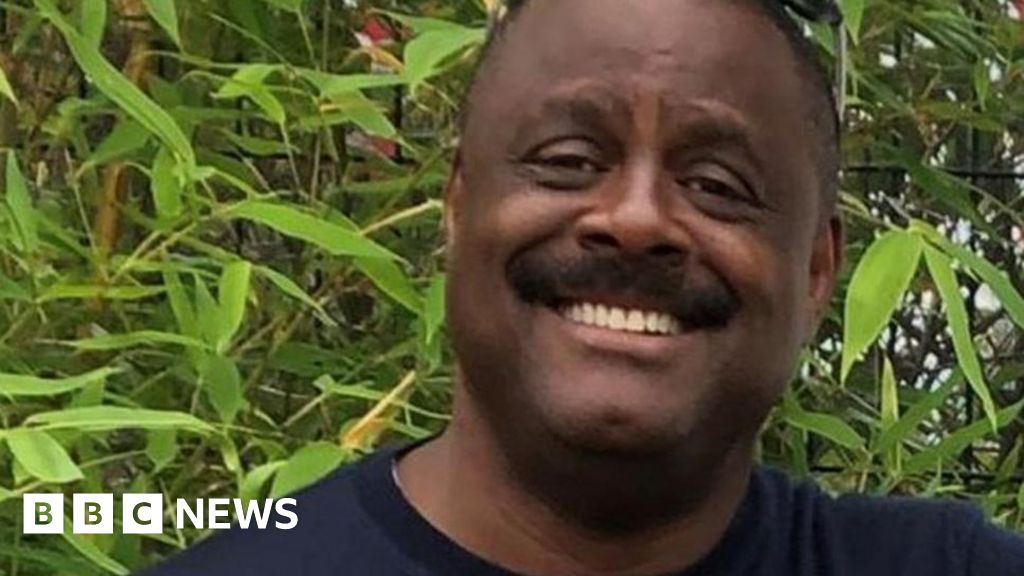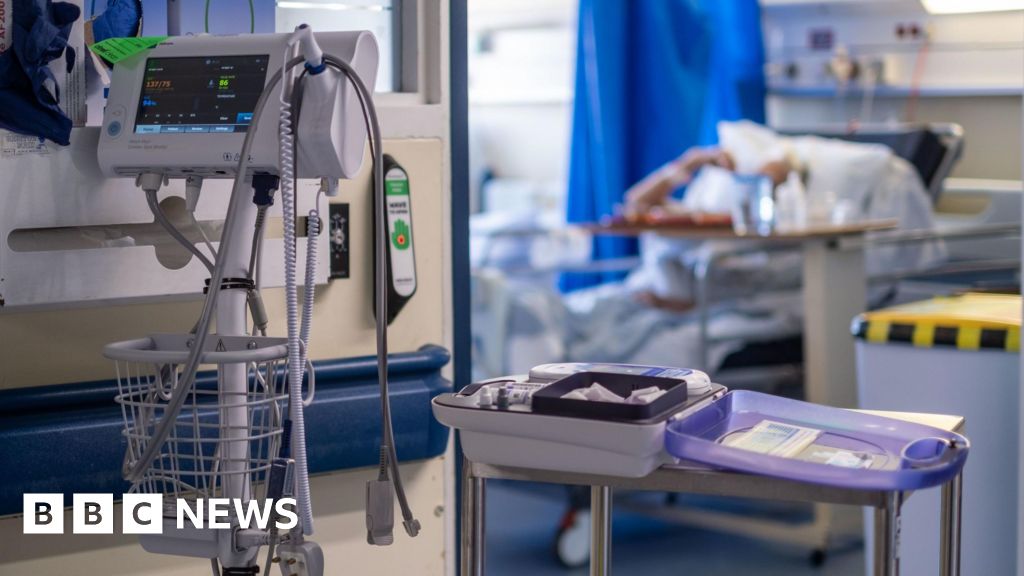ARTICLE AD BOX
Brian Murphy has motor neurone disease and is waiting on a care package
By Claire McAllister
BBC Scotland health producer
At the start of the Covid pandemic, much attention was placed on the role of intensive care units where the sickest patients were treated.
Exactly three years from the first lockdown restrictions, the pressures on ICU are different but staff say the aftershocks of the pandemic live on.
The critical care wards at the Queen Elizabeth University Hospital in Glasgow are the busiest in Scotland and have been full since the pandemic began.
But backlogs and blockages elsewhere in the NHS mean patients are unable to leave despite being medically ready to go home. This is a new problem for intensive care.
Brian Murphy has been ready to leave hospital for four weeks but cannot be discharged until a care package is put in place.
"I may only have months to live and every day I'm here is a day I'm not at home with my family," Brian said.
The 50-year-old has motor neurone disease, a condition that progressively damages parts of the nervous system.
He was admitted to hospital in January with acute appendicitis but he developed respiratory complications and had to be treated in intensive care.
A month ago, doctors said he could go home but his care would not be straightforward.
He has a breathing tube in his windpipe that would require 24-hour observation as part of his care package.
Until that can be arranged, he can't go home and there is nowhere else to treat him within the system.
"It's almost a deprivation of liberty being stuck in hospital when you could and should be at home," said Brian, a former cardiologist.
The latest figures show that in January there were an average of 1,833 people in this position in Scottish hospitals every day. Almost one in every six people in hospital.
Dr Andrew Mackay said before Covid ICU staff would rarely see a patient's discharge being delayed
Dr Andrew Mackay, clinical director for critical care at QEUH, said before Covid ICU staff would rarely see a patient's discharge being delayed but it was becoming increasingly common.
He said that across the 59 ICU beds there would be two or three patients that would be discharged home directly from ICU each month - now there are 40.
"It's quite a dramatic change for us," Dr Mackay said.
"As a specialty that don't normally directly discharge people home. I think that just reflects the pressure throughout the system," he said.
Over the past three years, about 1,000 patients with Covid were treated in the QEUH's critical care unit.
People being treated because of the virus is no longer the biggest burden but staff are still dealing with the impact of having worked through the pandemic.
Dr Mackay said: "Burnout is now a major concern among all of our staff groups.
"I think one of the most concerning things is that it has led to people who have left the profession entirely.
"I think when you see that happening you know that it's going to lead to staffing problems in the future."
Critical care nurse Jenny Montgomery said lots of staff had left
The turnover rate of NHS staff shot up last year to the highest level in more than a decade. Record numbers of people left last year but there are more people joining the NHS Scotland workforce.
Jenny Montgomery, a critical care nurse, said: "So many people did leave because it was awful. And rightly so.
"So many people couldn't actually cope with the stress on yourself and your work and your family life to then come in and still be here after that is incredible."
Both Jenny and her colleague Eilidh Williamson, a critical care charge nurse, said they felt guilt at not being able to look after people to their high standards.
They said one of the hardest things about Covid lockdown measures was the heartbreak of not being able to have visitors in the hospital when people were dying.
On coping with these experiences Eilidh said: "I think you have to be a stoic type person who just gets on with it, not that you're not upset or you're not emotional about it, but you almost have to detach a bit from it."

 2 years ago
118
2 years ago
118








 English (US) ·
English (US) ·